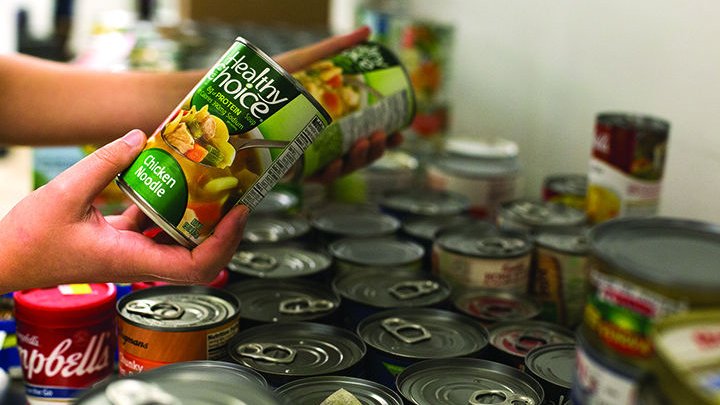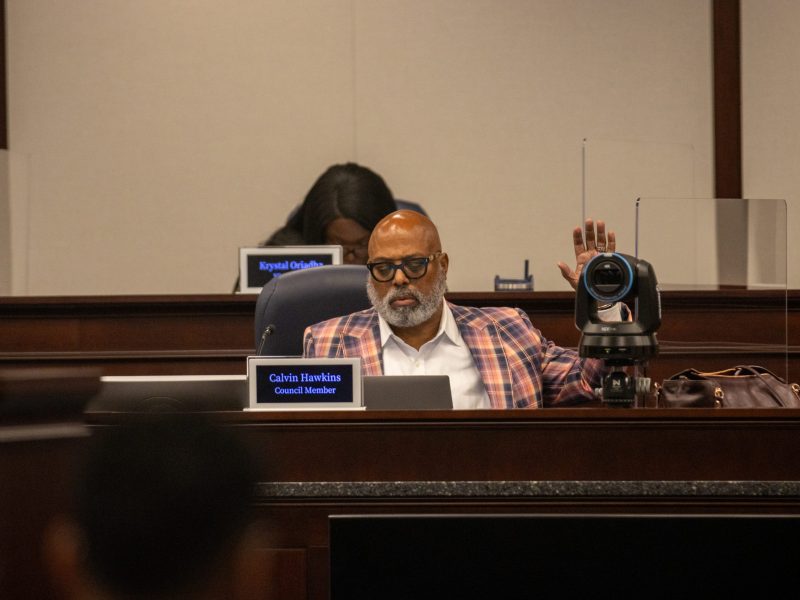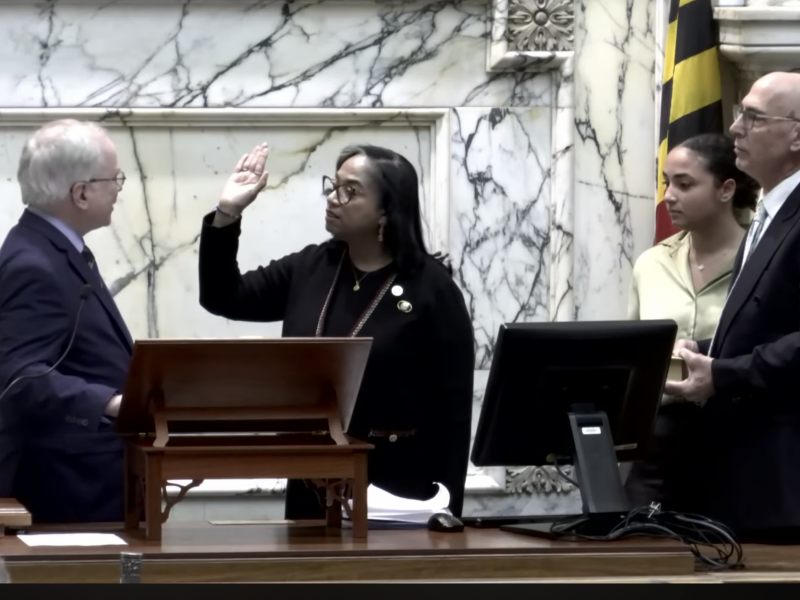In spring 2020, as COVID-19 cases began to rise across the country, Deborah Rosenfelt, a University Park resident, took note of how local food pantries overflowed with people. Food disappeared in 15 minutes, cars lined the road and there wasn’t enough food for those who needed it most, she said.
After nearly a decade of watching the lively restaurant scene develop right next door on Route 1, Rosenfelt said it was tough to watch the COVID-19 pandemic cause restaurants to struggle, leaving people unemployed and in a state of food insecurity.
This realization — that people in her local community were food insecure and without access to affordable or nutritious food — propelled Rosenfelt into action. That’s why when her friend, David Brosch, invited her to volunteer with Route One Communities Care, Rosenfelt said it was “a no brainer.”
Route One Communities Care was created by University Park residents as an initiative to support locally owned restaurants and address food insecurity in the area. The organization works with locally owned restaurants that agree to cook nutritious meals for people in need, and in return, ROCC pays the restaurant $10 per meal.
“It just bothered us that there were people who were basically our neighbors who didn’t probably have enough to eat,” Rosenfelt said.
[City of College Park names Kenneth Young city manager]
Rosenfelt, Brosch and a number of other community volunteers began raising money by promoting their GoFundMe page and applying for small grants. In addition to fundraising efforts, the volunteers also picked up prepared meals and delivered them to distribution sites.
Since the organization began raising money in April 2020, they have distributed over 23,000 meals, according to an ROCC fact sheet. Though after a year and a half of operations and nearly $240,000 raised, ROCC has paused distributions due to a lack of funding.
“We’ve all been willing to roll up our sleeves, do what we can,” said Patricia Hayes-Parker, the executive director of Central Kenilworth Avenue Revitalization, a nonprofit organization that helps ROCC manage and distribute their funding.
The College Park City Council voted to provide Route One Communities Cares with up to $50,000 during a meeting earlier this month. This is just one out of the twelve municipalities that ROCC is requesting funding from.
College Park Mayor Patrick Wojahn said that the city receives American Rescue Plan funding in two halves, and that once the city receives the second half of their funding, they will provide additional resources to community organizations such as Route One Communities Care, if support is still needed at that time.
“The restaurants are really engaged in the program,” Hayes-Parker said. “They care about the meals that they produce.”
[UMD professors join in effort to bring free WiFi to Prince George’s County park]
When ROCC asked Nomie Hamid, the owner of Krazi Kebob, if he could provide food, he said, “Absolutely, not a problem. Whatever we need to do, we will do.”
Hamid said that catering, which was a big source of income for Krazi Kebob before the pandemic, was hardly bringing in any revenue by the time Route One Communities Care reached out to him. Having some extra funds periodically from their work with ROCC helped with expenses during the worst of the pandemic, he added.
“This is a great program, it really helped out the local community, the businesses,” Hamid said.
Once Krazi Kebob’s financial situation improved, Hamid donated back over 300 free meals to the organization. He saw it as a way to return the favor.
“They had our back,” Hamid said. “We’re doing a lot better than things were a year ago.”
In order to raise additional funds for the initiative, Rosenfelt said Route One Communities Care will keep doing what they’ve always done: “putting one foot in front of the other.”
“Every little bit helps, I mean, 10 bucks buys a meal for a hungry family,” Rosenfelt said. “[ROCC is] like this organic community project that grew up and is needed and is flourishing, but I cannot say how long it’s going to bloom.”



